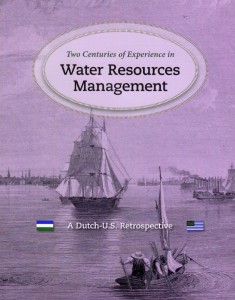International collaboration and comparative research
22 June 2015 – William Willingham
 Undertaking international projects presents challenges beyond the normal routine of archival and secondary research, oral interviews, writing, and revising. There are new issues, such as what language will the work ultimately be published in? What time frame will accommodate the needed international travel? What added expenses will be encountered that are not part of the consideration for work confined to historical research within one country? Who will be chiefly responsible for coordinating the work occurring on different continents and seeing all the elements of the work through to the end? Even such minor questions as map scales, monetary systems, and how measurements and distances will be presented–English or metric–have to be resolved for consistency’s sake.
Undertaking international projects presents challenges beyond the normal routine of archival and secondary research, oral interviews, writing, and revising. There are new issues, such as what language will the work ultimately be published in? What time frame will accommodate the needed international travel? What added expenses will be encountered that are not part of the consideration for work confined to historical research within one country? Who will be chiefly responsible for coordinating the work occurring on different continents and seeing all the elements of the work through to the end? Even such minor questions as map scales, monetary systems, and how measurements and distances will be presented–English or metric–have to be resolved for consistency’s sake.
As I prepare to deliver a plenary talk at the International Water History Association conference being held at the University of Delft, June 23-27, I have been reflecting on the challenges and rewards of collaborative work in an international context. This opportunity came about as the result of a book that I co-authored and edited with a Dutch water resources historian, titled Two Centuries of Experience in Water Resources Management: A Dutch-US Retrospective. Commissioned by the United States Army Corps of Engineers and the Dutch Rijkswaterstaat, this study synthesized, analyzed, and compared 200 years of water resources development in the two nations. The goal of the book was to show that comparative water management history could be a useful and informative tool for policy making. Although a scholarly work, the book was written for an informed lay audience and for the managers and policy makers of the two water resources agencies. Hopefully, the book will inspire other public historians to undertake similar types of collaborative and comparative studies focused on an international level.
International public history is attracting increasing attention within the wider discipline of public history. Attendance at the annual meetings of the National Council on Public History (NCPH) now includes historians from a variety of nations, and the meetings contain increasing numbers of sessions devoted to various aspects of public historical practice from an international perspective. In the end, the contribution to historical scholarship that such international public history projects can produce and the opportunity to collaborate with and learn from international partners make any potential problems seem minor in comparison. I encourage others, based on my experience, to engage in international public history projects.
~ William Willingham, a consulting public historian, works and has published widely in the fields of water resources development, architectural history, historic preservation, and community history.



